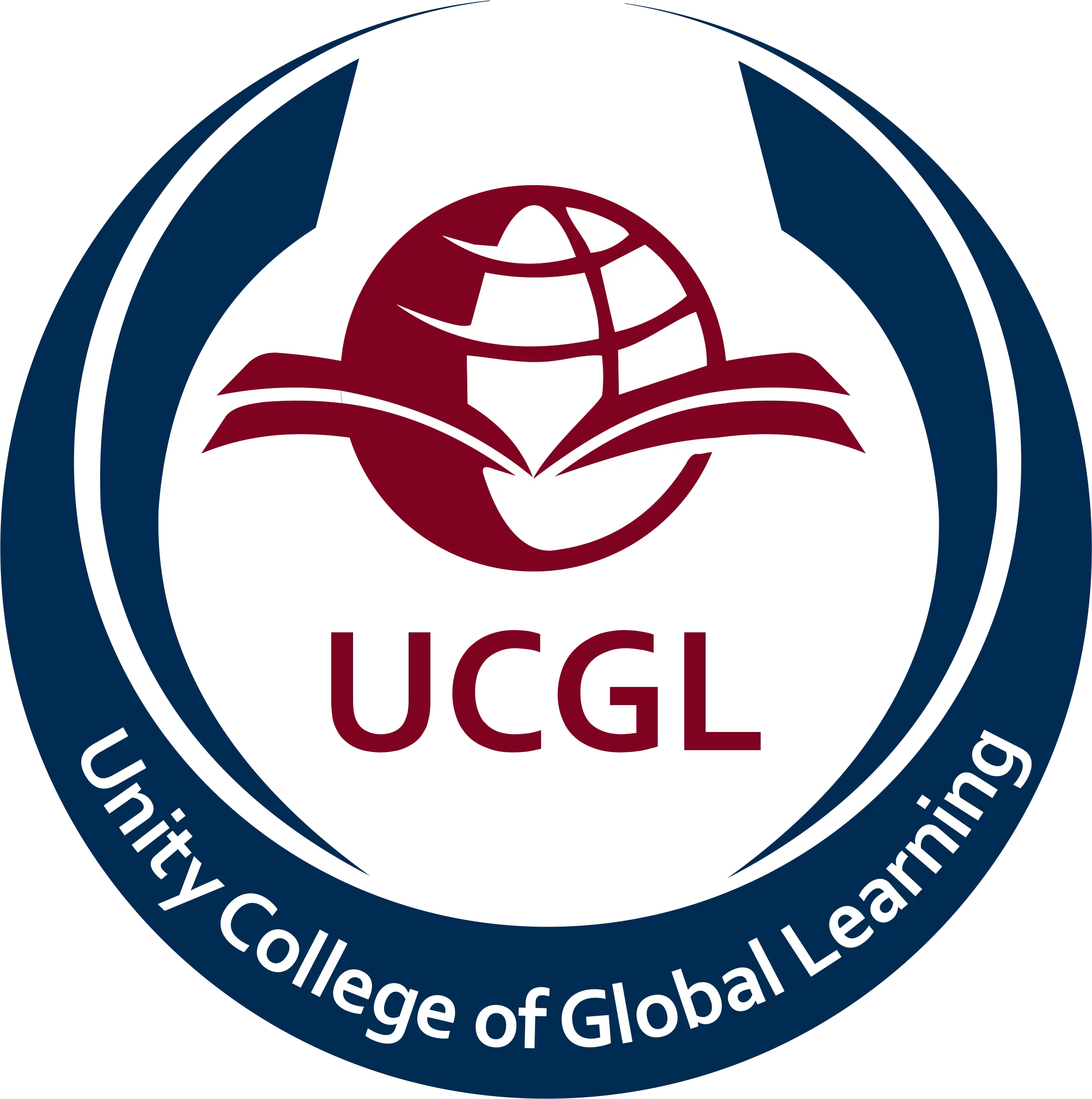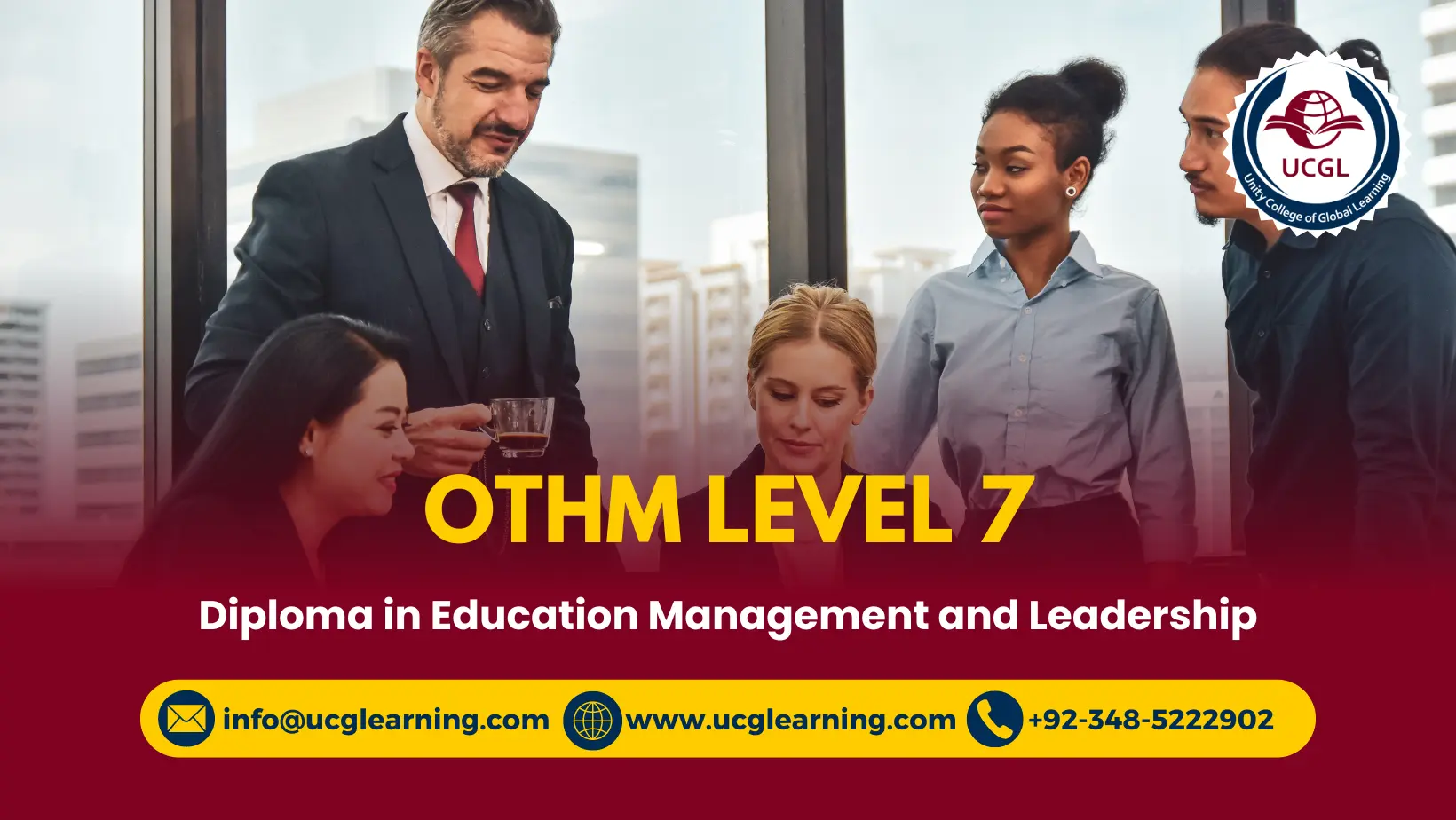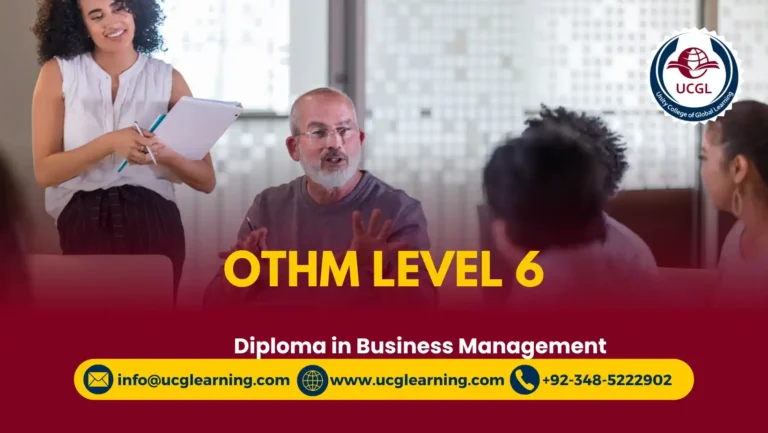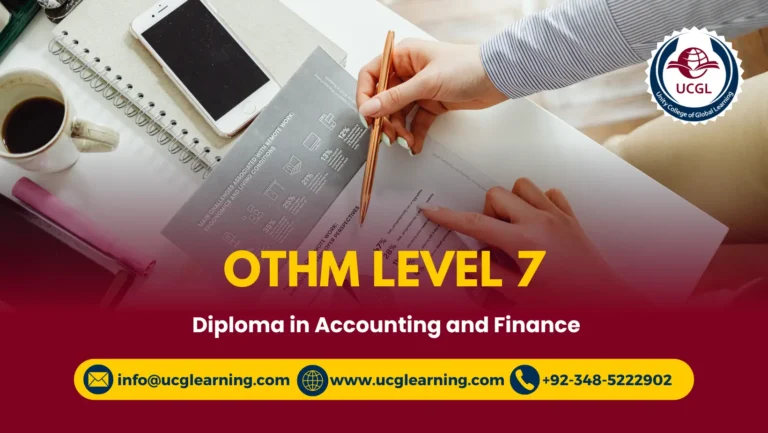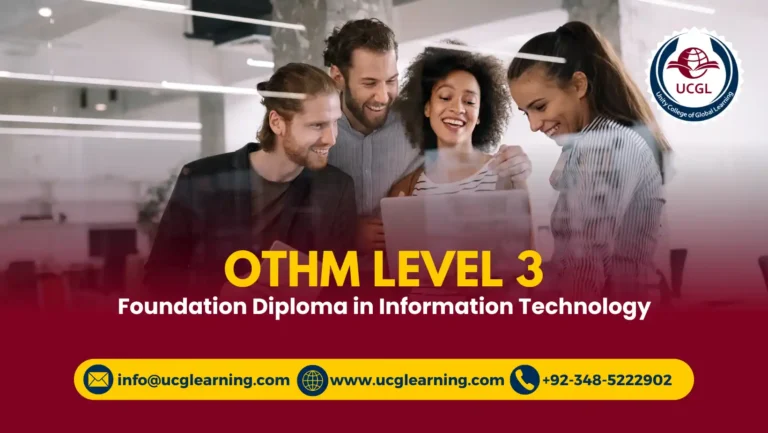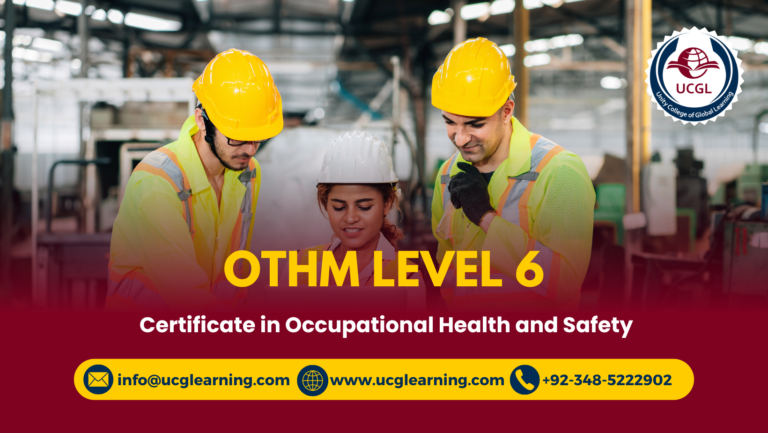OTHM Level 7 Diploma in Education Management and Leadership
The OTHM Level 7 Diploma in Education Management and Leadership is a prestigious qualification designed for professionals aspiring to lead and transform educational institutions. This diploma equips individuals with advanced skills and knowledge in educational management, leadership practices, and strategic planning to navigate the complexities of the educational landscape effectively.
Course Introduction
The OTHM Level 7 Diploma in Education Management and Leadership is tailored to meet the evolving needs of educational leaders who play pivotal roles in shaping educational policies, fostering innovation, and enhancing learning outcomes. Participants explore key concepts in educational management, leadership theories, and effective governance practices essential for driving educational excellence and organizational success.
Course Benefits
- Leadership Development: Enhance leadership capabilities to inspire and motivate teams, fostering a culture of collaboration and continuous improvement.
- Strategic Planning: Develop skills in strategic planning and decision-making to achieve educational goals and institutional growth.
- Effective Governance: Understand governance structures and policies to ensure transparency, accountability, and ethical conduct within educational settings.
- Educational Innovation: Drive innovation in teaching methodologies, curriculum development, and student engagement strategies.
- Career Advancement: Gain a globally recognized qualification that enhances career prospects in educational leadership and management roles.
Course Study Units
- Contemporary Issues in Education: Theory, Policy and Practice (20 credits)
- The Management of Educational Change (20 credits)
- Managing Effective Intercultural Communication and Perspectives (20 credits)
- Pedagogy and Practice in Education (20 credits)
- Leading Reflective Practice in Education (20 credits)
- Research Methods in Education (20 credits)
Learning Outcomes
Contemporary Issues in Education: Theory, Policy and Practice (20 credits)
- Critical Analysis: Critically analyze contemporary issues in education, considering theoretical perspectives, policy implications, and practical applications.
- Policy Evaluation: Evaluate educational policies and their impact on educational institutions, stakeholders, and society.
- Innovative Practices: Identify and promote innovative educational practices that address current challenges and enhance student learning outcomes.
- Collaborative Solutions: Collaborate with stakeholders to develop solutions that address complex educational issues and promote equity and inclusivity.
- Advocacy and Leadership: Advocate for educational reform and leadership practices that support effective educational outcomes and student well-being.
The Management of Educational Change (20 credits)
- Change Management Strategies: Develop and implement effective strategies for managing educational change initiatives within diverse educational settings.
- Stakeholder Engagement: Engage stakeholders in the change process to build consensus, support, and commitment for educational reforms.
- Resilience and Adaptability: Foster resilience and adaptability among educators and stakeholders to navigate challenges associated with educational change.
- Evaluation and Improvement: Monitor and evaluate the outcomes of educational change efforts to continuously improve educational practices and outcomes.
- Sustainability: Ensure the sustainability of educational change initiatives through strategic planning, resource allocation, and stakeholder involvement.
Managing Effective Intercultural Communication and Perspectives (20 credits)
- Intercultural Competence: Develop intercultural competence to effectively communicate and collaborate with diverse stakeholders in educational contexts.
- Cultural Awareness: Increase awareness and understanding of cultural differences and perspectives to promote inclusivity and mutual respect.
- Conflict Resolution: Apply conflict resolution strategies to address intercultural misunderstandings and promote positive relationships.
- Global Perspectives: Incorporate global perspectives into educational practices and policies to prepare students for a multicultural world.
- Promoting Diversity: Advocate for diversity and inclusion in educational settings through curriculum design, teaching strategies, and institutional policies.
Pedagogy and Practice in Education (20 credits)
- Effective Teaching Strategies: Implement evidence-based pedagogical strategies that enhance student engagement, learning outcomes, and academic achievement.
- Differentiated Instruction: Differentiate instruction to meet the diverse needs and learning styles of students in inclusive educational environments.
- Assessment for Learning: Design and implement formative and summative assessments that provide meaningful feedback and support student progress.
- Technology Integration: Integrate educational technologies effectively to enhance teaching and learning experiences and promote digital literacy.
- Reflective Practice: Engage in reflective practice to evaluate teaching effectiveness, identify areas for improvement, and enhance professional growth.
Leading Reflective Practice in Education (20 credits)
- Promoting Reflective Practice: Facilitate and encourage reflective practice among educators to enhance teaching effectiveness and student learning outcomes.
- Peer Collaboration: Foster collaborative learning communities where educators can engage in reflective dialogue, share insights, and support each other’s professional development.
- Action Research: Conduct action research projects to investigate and address educational challenges, implement evidence-based interventions, and evaluate outcomes.
- Continuous Improvement: Use reflective practice to inform decision-making, adapt teaching strategies, and promote continuous improvement in educational practices.
- Leadership Development: Support leadership development among educators through reflective practice, encouraging them to assume leadership roles and drive educational innovation.
Research Methods in Education (20 credits)
- Research Design: Design and develop research projects in education, selecting appropriate methodologies and techniques to address research questions.
- Data Collection and Analysis: Collect, analyze, and interpret qualitative and quantitative data using rigorous research methods and statistical analysis.
- Literature Review: Conduct comprehensive literature reviews to inform research design, identify gaps in knowledge, and contribute to the field of education.
- Ethical Considerations: Address ethical considerations in educational research, ensuring participant confidentiality, informed consent, and research integrity.
- Dissemination of Findings: Communicate research findings effectively through written reports, presentations, and publications to contribute to educational theory, policy, and practice.
These learning outcomes equip participants with the knowledge, skills, and capabilities to lead and manage educational institutions effectively, address contemporary challenges, foster inclusive environments, and promote continuous improvement in educational practices and outcomes.
Who is This Course For?
The OTHM Level 7 Diploma in Education Management and Leadership is suitable for:
- Educational Leaders: Principals, headteachers, and senior managers seeking to enhance their leadership skills and strategic management capabilities.
- Policy Makers: Professionals involved in educational policy development, implementation, and evaluation.
- Administrators: Educational administrators responsible for managing operations, finances, and human resources within educational institutions.
Future Progression
Completion of this diploma opens doors to various career advancement opportunities:
- Head of School or Department: Progress to senior leadership roles within educational institutions as headteachers or department heads.
- Educational Consultancy: Provide consultancy services to educational institutions on leadership, management, and strategic planning.
- Doctoral Studies: Pursue further academic research in education management, leadership, or related fields.
- International Opportunities: Explore opportunities in international education management and leadership roles across global contexts.
OTHM Level 7 Diploma in Education Management and Leadership empowers educational leaders with the knowledge, skills, and confidence to lead with integrity, innovate with purpose, and drive positive change within educational institutions. Embrace this opportunity to shape the future of education, making a lasting impact on student learning outcomes and educational excellence.
